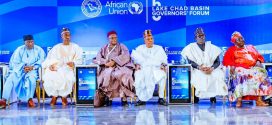, Master Mariner, MSc, MBA
The text of speech delivered by the honorable captain Emmanuel Ihenacho, former Honourable Minister for Interior during the 2014 Annual conference of the Nigeria Bar Association held at owerri on August 25, 2014.
1 INTRODUCTION
Distinguished Ladies Gentlemen,
I will like to start by expressing my sincere thanks and appreciation to the leadership and members of the Nigerian Bar Association (NBA) for inviting me as your luncheon Guest speaker in your meeting today.
The theme of this year’s conference is very apt and quite contemporary considering the fact that earlier this year, the nation had cause to celebrate the centenary of the amalgamation of the Northern and Southern British protectorate Territories which ultimately gave birth to modern day Nigeria. This conference is also coming few days after the formal closure of the National Conference in which your association was not only well represented, but participated fully in the conferences work and deliberations. The conference has since submitted its report to the federal government as we note that the issues, challenges and other matters relating to and arising from that the amalgamation of January 1, 1914 were elaborately discussed.
The Bar Association in most nations of the world, generally assume the role of the sentinels of democracy, particularly in nascent democracies such as Nigeria’s. The Nigerian Bar Association continues to play a critical and leading role as the vanguard for the promotion of the rule of law, democracy and good governance. These factors remain critical for the growth of sustainable socio-economic and political development in all nations of the world, including Nigeria. The absence of these key ingredients and conditions could very well result in the bitter prescription for a failed state, a situation which one never wishes for but which nevertheless may come as a natural direct consequence of the choices we make as a nation.
It is therefore logical for one to expect that the aspirations of the Association should be a reflection of those of its founding fathers, particularly, that of the first Nigerian lawyer, Late Mr. Alexander Christopher Sapara Williams, enrolled as a lawyer, in 1888 and died much later in 1915, and who had poignantly and classically posited that, ‘’A legal practitioner lives for the direction of his people and the advancement of the cause of his country”.
The amalgamation of Nigeria in 1914 was a milestone and a watershed in Nigerian history. It gave Nigeria its present size and shape. It also gave Nigeria its present complexity, one measure of which is the diversity of cultures which are aggregated under a common banner. This diversity has necessitated to the adoption of federal structure for the country. The country has indeed come a long way from 1914 achieving grate feats in social, academic, political and economic developments whilst remaining confronted in some cases, with unique issues and challenges not uncommon with what may be expected a multi-cultural society.
It has certainly not been entirely rosy all these years, our history in the last 100 years of amalgamation has been a history of mixed fortunes, a history characterized by measures of great strides in some areas and stark failure in others. We have witnessed our rise to greatness, followed by state of persistent and pervasive decline. It remains a paradox that Nigeria which is generously endowed with tremendous potentials in terms of available natural, human and material resources continues to be ravaged by the pangs of poverty, underdevelopment, social insecurity and now terrorist insurgency. We have experienced crises of legitimacy, of succession, of authority and crises of nationally acceptable leadership.
Despite these numerous challenges which militate against national transformation, it is imperative that we advance our country’s emergence as a politically powerful, socially stable and democratic society; a technologically advanced industrial economy, a prosperous and equitable society and a powerful player in the global system. In the final analysis, what should be uppermost in the minds of Nigerians is the need to lay the foundations of an inclusive system that which will guarantee a stable society.
I will like to use this forum to share with this distinguished audience some of my concerns about the legal system in the country and how this noble profession might more effectively and meaningfully contribute to the consolidation of our nascent democracy. In general terms, our hopes Centre on evolution and development of our entire legal system into a major instrument of social change, not in a theoretical or abstract sense but in terms of concrete transformation of its philosophical base, its institutions and its operators.
Fundamentally, our legal system must be product of our history as a people. It must continue to reflect our contemporary concerns and must remain capable of changing to meet the needs of the future. It must exist independently of the will of any particular class, for it is the widest basis of our agreement to exist as political and social collectives, even whilst acknowledging our anthropological differences. It must not only operate in open to enable it retain its respect and legitimacy in the eyes of all citizens, but also to continue to be relevant to the society as a whole.
Your profession is uniquely placed to continue to make the desired social change after 100 years of Nigeria’s amalgamation through periodic review of our legal system, through harmonization where it becomes socially desirable, but more importantly through the elimination of area of ignorance and the fear of other legal systems among our people. A logical starting point must lie in the broadening of the intellectual basis of our legal institutions, so that members of this noble profession possess at least the basic requirements to practice in any part of the country.
Distinguished ladies and gentlemen, a new Nigeria of my dream after 100 years of amalgamation must be a society that will enjoy the benefits of a respected and trusted judiciary. A judiciary which is not insulated from political control or financial pressures is soon weakened and put in disarray. Under such conditions, brigandage replaces societal order and the right to life and property becomes threatened and compromised. The judiciary will forever remain a vital custodian of our individual liberties. Whilst no constitutional system or the instruments which govern it can be perfect or made fully protected against human abuse, I recommend that our judges continue to be courageous, impartial and honest n the discharge of their duties and responsibilities. We must seek to strengthen the instruments governing our judiciary so that it can consistently play its assigned constitutional role as the stabilizing factor in our democratic system. Whilst the judiciary should be given ample opportunity to function effectively and speedily, it is the interest of the judiciary itself that specific constitutional provisions be available which guarantees its independence whilst retaining the confidence whilst retaining the confidence of the society.
Let me take the opportunity of my brief this afternoon to look at three issues which I consider aberrations which may constitute an impediment in our collective efforts towards consolidating our fledgling democracy and about which I think you learned ladies and gentlemen are well positioned to intervene for positive effect.
First is the issue of immunity clause. Section 308 of the 1999 constitution as amended confers immunity from prosecution on our President, Vice President, State Governors and their deputies. The farmers of our constitution had ostensibly planted this provision in our constitution in order to avoid distracting our leaders from the very serious business of providing dividends of democracy to their people. There is no reason to fault the nobility of the idea which serious minded leaders in other countries are using to better the lot of their people.
Unfortunately for Nigerians, the restriction on legal proceedings on our elected ‘big men’ has become a license for them to behave like unaccountable fiefs. Bare-faced looting of our common patrimony is done under the protection of the ‘immunity clause’ as it is popularly called. Even when it is very obvious to the governed that their collective resources are being mindlessly squandered by the very people who are supposed to be holding this common wealth on behalf of their people, very little or nothing can be done. Obviously, our elected leaders have found a perfect shield in section 308 of the constitution to commit all manner of atrocities against their people.
No wonder every time an election year approaches, virtually everyone large or small, qualified or not, generally signify their interest in running office. Why not? I could well be the quickest way to untold riches, particularly if you are fully protected I your elective position, by the availability of the immunity rom prosecution clause.
Second, is the vexed problem of the authority of the states visa-visa the extent of its control on local governments have been a recurring decimal in each democratic dispensation under the 1999 constitution. The courts have similarly been faced with the problem of the extent of the state power of control over the activities of the local government councils. Although the constitution created the local government without stating its powers, functions and tenure, it gives the state Governments, the powers to regulate the affairs of the local government. Almost all state has exploited this constitutional lacuna to dissolve local government at will and establish transitional committees. I feel this aberration and should be seriously challenged by NBA more particularly in the light of the recent ruling by the Supreme Court affirming the position that governors generally do not have the powers to sack elected government officers.
Thirdly, there is in my view, a requirement for the NBA to use the instrument of law to compel state governments of oil producing states to ensure that 13 percent derivation funds are judiciously utilized in those communities that are actually producing the oil. What we see in some states is that Governors divert these funds for other uses instead of using them for the development those areas. It would be nice if the NBA could assiduously apply itself and its intellectual resources in ensuring that any court judgments on this matter is compiled by defaulting oil producing states. The reoccurring decimal since our return to democracy in Nigeria is the problem of the tendency of government agencies to disobey court orders.
Distinguished ladies and gentlemen, as well as chart a new course for our national after 100 years of amalgamation, I want to charge NBA to see this period as a time of self-examination and rededication. The NBA is the conscience of the nation and as such should effectively deploy the instrumentality of the law to stimulate, drive and galvanize a social change in the society no matter whose ox is gored and especially so under a civilian democratic dispensation. The above critical role could only materialize under a courageous, dishonest, vibrant, independent, industrious, united and knowledgeable bar association and not one that totters and grovels under the apron strings of the executive.
An honest review of the state of the nation reveals a country in need of urgent deliverance, occasioned by apparent and palpable decadence in public morality, apparent derogation of our value system, generalized corruption all of which has engendered deep crisis in all the critical sectors of the economy. The consequence of this fall in social mores is that we now daily have to contend with incidences of brazen violation of human rights, large scale poverty, moral decadence, communal and ethnic rivalry, religious and political bigotry, the growing spate of kidnapping, armed robbery, cultism, youth restiveness, armed insurgency and acts of brigandage witnessed across the country as a whole.
Distinguished ladies and gentlemen, any effort towards the attainment of real human and economic development without considering the requirement for the promotion and protection of the fundamental rights of the people will result in utter futility.
The NBA can do a whole lot to advance the developmental and social cause of this country by ensuring the principles of the rule of law such as constraining the power of government, mitigation of corruption, promoting greater transparency in governance, promoting good order, civil justice.
I thank you once again for giving me the opportunity to speak to you.
Captain Emmanuel Ihenacho
 Hottestgistnaija.com
Hottestgistnaija.com





